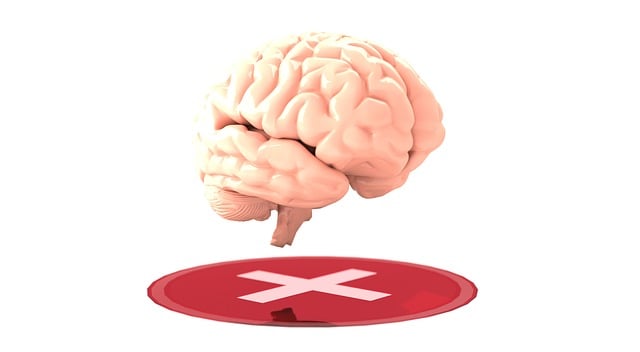Positive thinking exercises and Acceptance and Commitment Therapy (ACT) are powerful tools for enhancing children's mental wellness by cultivating a positive mindset, teaching them to reframe negative thoughts, and fostering resilience. Through practices like gratitude journaling and mindfulness techniques, kids develop emotional awareness, empathy, and self-acceptance, equipping them with effective coping mechanisms for stress and anxiety. ACT encourages individuals to accept emotions and thoughts without judgment, promoting mental wellness and emotional well-being through structured workouts tailored to different age groups and cognitive abilities. Implementing these strategies in educational settings and homes can significantly support children's mental health, preventing burnout and fostering growth mindsets. Measuring success involves tracking progress through conversations, mindfulness meditation, journaling, and apps for continuous improvement.
Positive thinking exercises play a pivotal role in shaping children’s mental resilience and overall well-being. This article explores effective strategies to introduce positivity through Understanding Positive Thinking Exercises for Children, leveraging the power of Acceptance and Commitment Therapy (ACT), and designing engaging workouts tailored for young minds. We delve into practical implementation tips for teachers and parents, emphasizing the significance of measuring success and tracking progress. Discover how these techniques can foster a positive mindset in children using evidence-based therapy approaches.
- Understanding Positive Thinking Exercises for Children
- The Role of Acceptance and Commitment Therapy (ACT) in Fostering Positivity
- Designing Effective Positive Thinking Workouts
- Implementation Strategies: Tips for Teachers and Parents
- Measuring Success and Tracking Progress
Understanding Positive Thinking Exercises for Children

Positive thinking exercises are an effective therapy for children, offering a gentle and accessible way to improve mental wellness and build empathy. These exercises focus on cultivating a positive mindset, which can help kids navigate challenges with resilience. By incorporating simple practices like gratitude journaling or positive affirmations, children learn to reframe negative thoughts, fostering a sense of optimism and self-acceptance.
Acceptance and Commitment Therapy (ACT) is one approach that encourages kids to become aware of their emotions without judgment, promoting mindfulness and values-driven behavior. Mind over matter principles are instilled through these strategies, teaching children how to manage their thoughts and feelings, ultimately enhancing their ability to cope with stress and anxiety. Empathy building strategies within positive thinking exercises create a supportive environment, helping young individuals understand and appreciate diverse perspectives.
The Role of Acceptance and Commitment Therapy (ACT) in Fostering Positivity

Acceptance and Commitment Therapy (ACT) has emerged as a powerful tool to foster positive thinking in both adults and children. This therapy focuses on helping individuals accept their emotions and thoughts without judgment, enabling them to make meaningful choices aligned with their values. By promoting mental wellness and emotional well-being promotion techniques, ACT helps people navigate life’s challenges with greater flexibility and resilience.
Through stress management workshops and organization of supportive environments, ACT encourages individuals to embrace the present moment rather than dwelling on the past or worrying about the future. This mindset shift is crucial in preventing psychological distress and fostering a sense of calm and contentment. By integrating these principles, ACT becomes an effective approach for enhancing overall mental health, especially among children who are learning essential life skills for emotional regulation and coping mechanisms.
Designing Effective Positive Thinking Workouts

Designing effective positive thinking workouts involves tailoring activities to suit the age group and cognitive abilities of the participants. For children, incorporating play-based therapy methods can make these exercises engaging and fun. Acceptance and Commitment Therapy (ACT) techniques, for instance, can be adapted into games or storytelling sessions that encourage kids to acknowledge and accept their emotions while pursuing valued actions. A well-structured workout might include activities like positive affirmations through role-play, gratitude journaling with colorful illustrations, or mindful breathing exercises during short breaks.
The Community Outreach Program Implementation can further enhance these workouts by fostering a sense of belonging and support. Communication strategies, such as open discussions or peer mentorship, allow participants to share their experiences and learn from one another. Integrating self-care routine development for better mental health into the workouts promotes long-term well-being by teaching children practical coping mechanisms. These strategies collectively contribute to creating robust positive thinking exercises that resonate with young minds.
Implementation Strategies: Tips for Teachers and Parents

Implementing positive thinking exercises in educational settings can be a powerful tool for teachers and parents to support children’s mental well-being. Acceptance and Commitment Therapy (ACT) offers a structured framework that can be integrated into daily routines. Teachers can incorporate brief mindfulness activities, encouraging students to focus on the present moment and accept their thoughts without judgment, which is a core principle of ACT. For instance, simple breathing exercises or short body scans during class breaks can help reduce stress and improve attention.
Parents can also utilize these strategies at home by fostering open conversations about emotions and teaching children to identify and express their feelings effectively. Social Skills Training, tailored to each child’s needs, can enhance their ability to manage emotions and interact positively with peers. By promoting a growth mindset and setting achievable goals, parents can prevent burnout, which is particularly relevant for healthcare providers as well, implementing similar strategies in their self-care routines.
Measuring Success and Tracking Progress

Measuring success and tracking progress are vital components of any positive thinking exercise, especially when employing therapy techniques like Acceptance and Commitment Therapy (ACT). Success in this context isn’t solely about achieving specific goals but rather witnessing shifts in perspective and behavior that enhance overall well-being. Parents and caregivers can use simple tools to gauge these changes. For instance, regular conversations with children about their emotions, thoughts, and actions can reveal progress in emotional regulation, a key aspect of ACT.
By integrating mindfulness meditation and stress management techniques, parents can foster confidence-boosting experiences for their children. Keeping a journal or using apps designed for Mindfulness Meditation can help document changes over time. This tracking process allows adults to identify what works best for each child, adapt exercises accordingly, and celebrate small victories along the way, ensuring continuous growth and positive outcomes.
Positive thinking exercises, particularly those rooted in Acceptance and Commitment Therapy (ACT), can significantly enhance a child’s well-being. By designing effective workouts and implementing strategies tailored for teachers and parents, we empower children to cultivate resilience and emotional flexibility. Measuring success through tracked progress ensures these interventions remain impactful and adaptive. Embracing these practices not only fosters positivity but also equips kids with lifelong coping mechanisms, contributing to their overall mental health and happiness.














